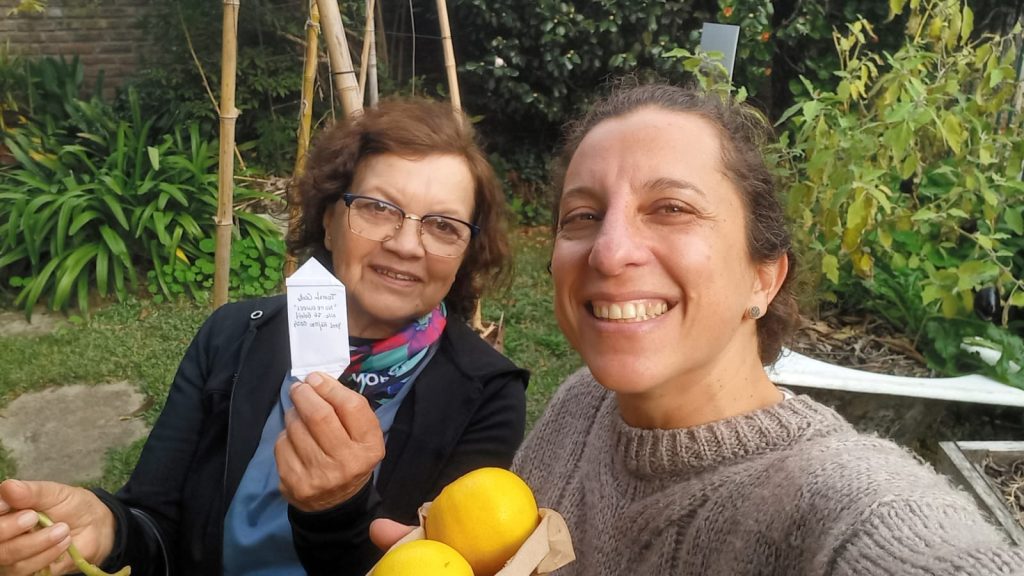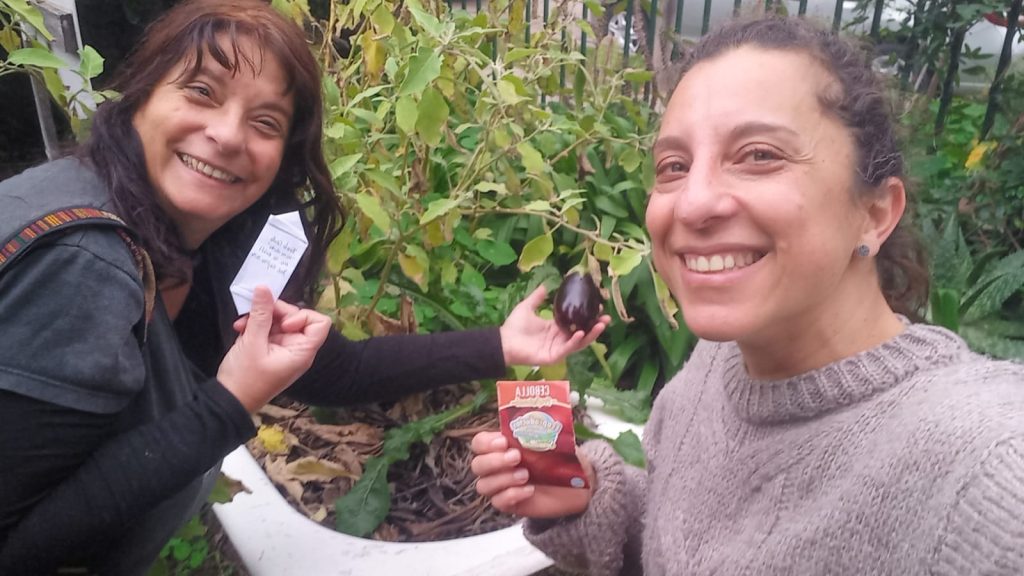By Yael Tachdjian


Recovering authentic tomato flavour is one of my biggest goals since I started to grow my food. The gatherings between urban growers, where we exchange seeds and knowledge, are crucial to preserving vegetal diversity.
In June, at the WhatsApp group “Creole Tomato 2023-2024”, the post of the Tomato Public Tasting at the Faculty of Agronomy (UBA) awakened great interest. Many people started to receive questions from others interested in obtaining seeds of the presented varieties. Haydeé and Myriam, i.e., asked for some seeds of “No me olvides” [“Don’t forget me”], which produced excellent results at my orchard in Martinez.
Haideé is enthusiastic about plants, and despite having limited space, she spent years learning and improving her farming techniques. For her, receiving seeds meant more than just planting, it was the chance to connect with her childhood through the flavour and aroma of an ancestral tomato. She told me: “The exchange in the Creole Tomato group thrilled me. Yael was incredibly generous sharing her seeds without expecting anything. This uninterested attitude reflects the collaboration spirit that sustains urban growers’ communities”.
Myriam, a Yoga teacher with scarce free time, was also excited to find the seed she had been looking for. For her, growing this tomato was not just a gardening project, but a way to reconnect with the land and its roots.
Seed exchanges between growers assure the continuity of local and traditional vegetal varieties and strengthen our communities by fostering collaboration and knowledge circulation. This free flow of seeds not only preserves the genetic diversity of plants but promotes food autonomy and resilience against diseases and changing climatic conditions. Also, on a personal level, it allows me to reconnect with the history and flavours of my region, thus contributing to the revitalization of sustainable and culturally significant agricultural practices.